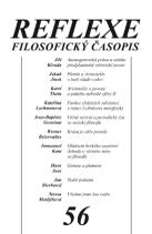Democritus’ Care for the Soul
Democritus, like Plato, dealt with both ethical and political questions and also the relationships between them. What is often ascribed to Plato and Socrates, the discovery of the ethical dimension, was already systematically elaborated by Democritus. And also Plato’s question „How to live?“, which cannot be answered without introducing the concept of the soul into the whole problem, is thematised by Democritus as a question of the greatest good, which he calls euthymia, cheerfulness. This can be achieved through constraint, harmony of the soul or spiritual peace. With Democritus, as with Plato, the idea of the harmony of the soul plays a key role. The difference in the concept of harmony in the two thinkers lies in the fact that for Democritus harmony is only the harmony of the states of the soul, which when thus arranged have a positive influence on the body, whereas for Plato all the components of the spirit are harmonised, including the physical component. And therefore the answer to the question of the aim of life is different for each of them, but it cannot omit the idea of caring for the soul. The difference between Democritus and Plato can be characterised as the difference between a wise man and a philosopher.
Backlinks: Reflexe 23
